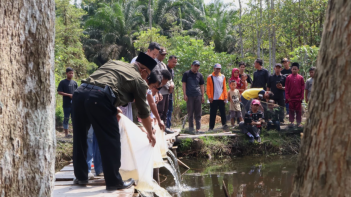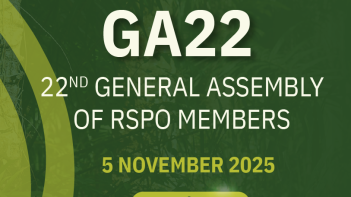Oil palm cultivation can bring economic benefits in Kigoma, Tanzania
In the Kigoma region of Tanzania, more than 30,000 smallholder farmers rely on palm oil cultivation for their family income and livelihood. Oil palm trees are native to Kigoma, and for many small farmers in producing regions, cultivating oil palm trees means breaking the poverty cycle for the local people. What is encouraging about the farming community in Kigoma, however, is their will to improve the palm oil industry throughout the region; ensuring sustainability is topmost on their agenda. Enter Seed Change, a community-based organisation whose mission is to sustainably support the poorest Kigoma farmers, helping to educate them on the economic benefits of sustainable oil palm cultivation and on improving agricultural production, with solutions tailored to the local conditions.
The Seed Change approach to helping farmers
Seed Change provides a two-pronged approach to the Kigoma smallholder farmers. First, the organisation purchases high-yielding tenera oil palm seeds from leading breeders and grows them in a “seed nursery” for one year, before distributing the trees to smallholders. Next, they offer a “farmer extension” programme, which includes group trainings, one-on-one farm site visits, and farmer group development. Beatrice Fuchs, Executive Director at Seed Change, explained that part of the farmer extension programme also focuses on sustainability training. “The quality of life for Kigoma smallholder farmers is intrinsically linked to the quality of their land. They want to reverse the trend of land degradation, while improving the opportunities for their families. Their farms have been passed down to them through generations, and they want to ensure that they can pass the land on to their children, as well.”
RSSF grant will help expand farmer training programme
Seed Change currently works with over 400 farming families. With support from a grant received through the Roundtable on Sustainable Palm Oil’s Smallholder Support Fund (RSSF) in October last year, the organisation is expected to expand their farmer training programme to include 800 farmers, working in 40 farmer groups.
The RSSF grant encompasses several outcomes, with the ultimate goal being to prepare the Kigoma smallholder farmers for sustainable certification through RSPO Principles and Criteria. In the fourth quarter of 2016, Seed Change began work on improving and developing internal control systems to meet RSPO requirements. This included developing trainings and expanding the Farmer Training Handbook to include 16 lessons with a strong focus on group development and management and environmental awareness and sustainability. The lessons commenced in January 2017 and are going according to plan, said to Fuchs. “Lessons have been well received and we are looking forward to preparing for certification in 2018, and possibly expanding the programme.”
For more information about Seed Change or to make a donation, visit:
www.seedchangetanzania.org
To discover more about RSSF and to apply, visit https:
www.rspo.org/smallholders/rspo-smallholders-support-fund
Keep reading

Rowo Ombo: From Neglected Swamp to a Symbol of Hope and Conservation in Jambi, Indonesia

Save the Date: The 22nd General Assembly (GA22) of RSPO Members

Access into prisma

10 Years of RSPO in China: Driving Palm Oil Transformation Towards Sustainability

Updated Trace Function in prisma

Call for Expression of Interest: Independent Investigation of a Complaint

Latin American Smallholders, Key Global Brands Gather in Peruvian Amazon to Advance Sustainable Palm Oil

RSPO Forum for Members and Certification Bodies 2025: Strengthening Capacities and Building Bridges with RSPO Members




